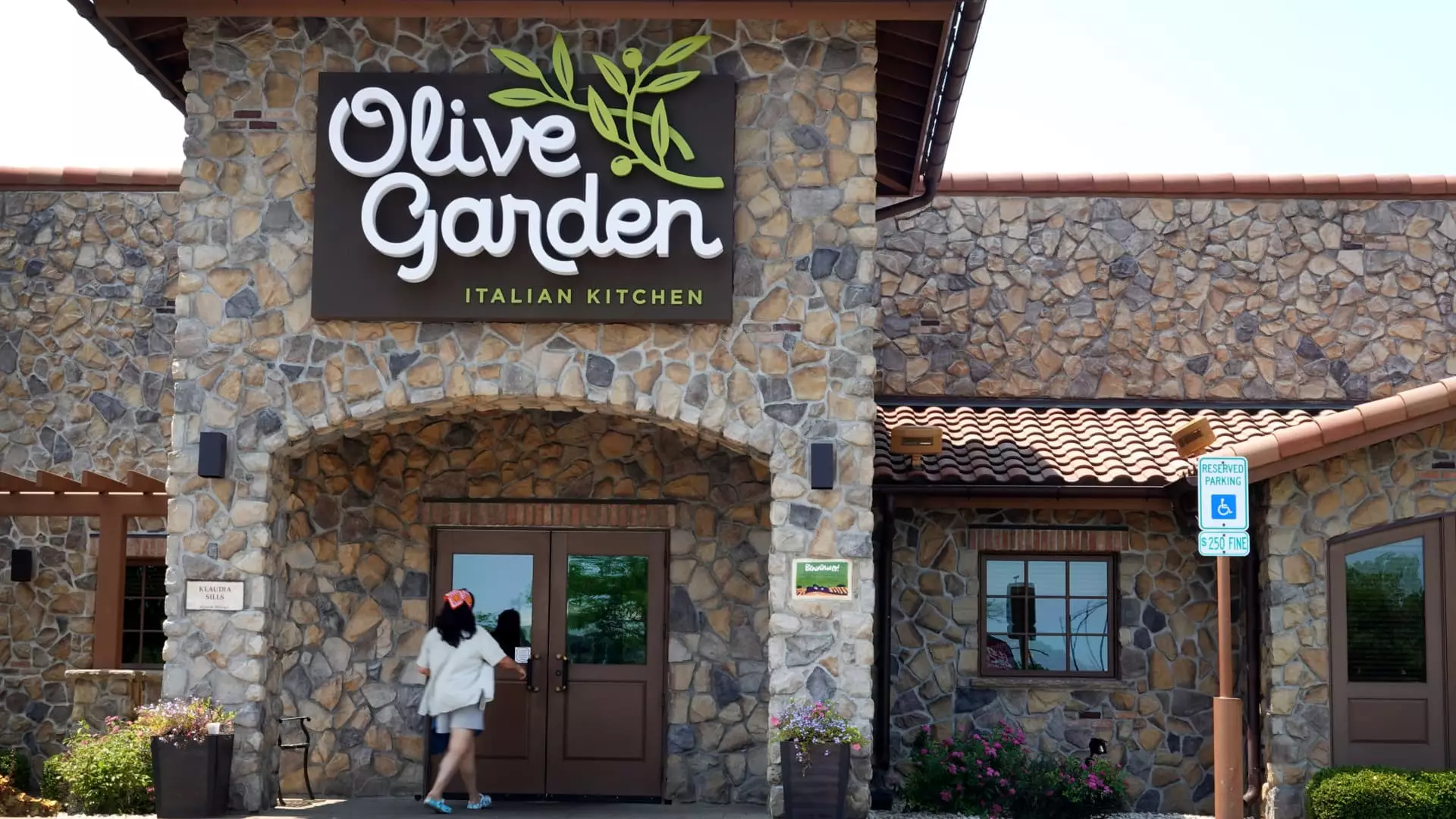Darden Restaurants, the parent company of popular dining venues such as Olive Garden and LongHorn Steakhouse, recently announced its fiscal first-quarter results, revealing a disappointing performance on several fronts. The company’s earnings and revenue figures fell short of analysts’ expectations, with notable declines in customer traffic and same-store sales. Despite these challenges, CEO Rick Cardenas expressed optimism about the company’s future, emphasizing the importance of long-term strategies over short-term fixes.
For the quarter ending August 25, Darden reported adjusted earnings per share of $1.75, slightly below the anticipated $1.83. Revenue figures also lagged, coming in at $2.76 billion versus the expected $2.8 billion. While net income did rise to $207.2 million from the previous year’s $194.5 million, this increase was overshadowed by the overall sales performance, particularly concerning the core offerings of Olive Garden and the high-end dining sector. Such discrepancies signal an urgent need for Darden to reassess its market strategies and customer engagement practices.
The dip in same-store sales, particularly a 2.9% decline for Olive Garden and a staggering 6% drop for its upscale dining options, raises critical questions about consumer preferences and the effectiveness of the company’s marketing initiatives. The slight growth of 3.7% in LongHorn Steakhouse’s sales stands out as a beacon amidst a sea of discouraging figures, highlighting that certain segments within the portfolio are resonating better with patrons than others.
Analysis from CFO Raj Vennam points to a decline in restaurant traffic, specifically in July, raising concerns that external factors like increased summer travel and shifting dining habits may be affecting customer turnout. This sentiment is echoed across the restaurant industry, suggesting that it may be more than just Darden-specific issues but rather a broader trend in consumer behavior. There’s a clear challenge for Darden to not only bring patrons back but also maintain engagement through enticing menu offerings and promotions.
The reintroduction of popular promotions such as the “Never Ending Pasta Bowl” demonstrates Darden’s attempt to reinvigorate interest in the Olive Garden brand. However, the effectiveness of such promotions heavily relies on not only pricing strategies but also the perceived value provided to customers. Continuous iterations of successful marketing campaigns will be critical for Darden moving forward.
Despite the less-than-ideal quarterly results, Darden remains committed to its long-term outlook for fiscal 2025, projecting earnings per share between $9.40 to $9.60 and net sales in the range of $11.8 billion to $11.9 billion. The acknowledgment of challenges alongside a positive growth forecast reflects management’s confidence in the company’s adaptability and resilience.
Investors responded positively to Darden’s affirmation of full-year projections, with share prices rising about 10% in premarket trading. This optimism might stem from the company’s strong foundational strategies, which continue to prioritize long-term gains over hasty adjustments in the face of immediate pressures. Moving forward, Darden must refine its strategies to not only combat current declines but to also capitalize on opportunities that can rejuvenate its sales trajectories across all dining segments.

